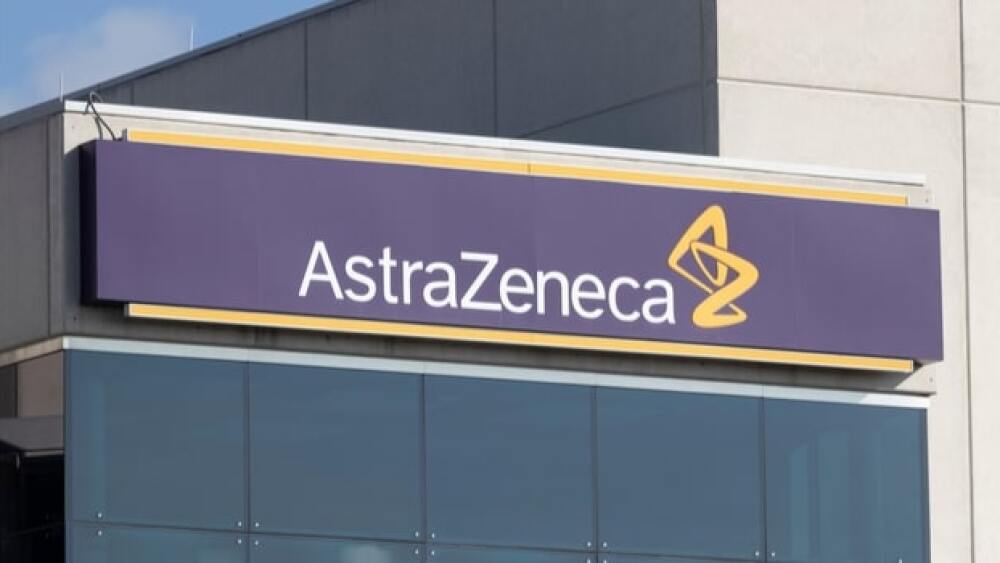AstraZeneca released data Wednesday morning from two studies in breast cancer: the Phase III CAPItello-291 trial studying capivasertib and the Phase II SERENA-2 trial studying camizestrant.
Courtesy Jonathan Weiss/Shutterstock
AstraZeneca released data Wednesday morning from two trials for breast cancer candidates: the Phase III CAPItello-291 trial studying capivasertib and the Phase II SERENA-2 trial studying camizestrant.
Astra’s Capivasertib Shows Potential as First-Line Treatment
Data from a late-stage assessment of AstraZeneca’s experimental breast cancer treatment capivasertib suggest it has the potential to become a first-line treatment in HR-positive breast cancer regardless of biomarker status.
In the Phase III CAPItello-291 trial, AstraZeneca’s capivasertib, in combination with the chemotherapy drug Faslodex, demonstrated a statistically significant and clinically meaningful improvement in progression-free survival (PFS) compared to Faslodex and placebo.
The study included two primary endpoints of overall improvement in PFS and a subgroup of patients whose tumors had mutations in the PIK3CA, AKT1 or PTEN genes. Both endpoints were met. Full trial data is expected to be reported at an upcoming medical conference.
Capivasertib is a potent, selective adenosine triphosphate (ATP) -competitive inhibitor of all three AKT isoforms (AKT1/2/3). The oral medication is being assessed in multiple clinical programs as a potential therapy for tumors that harbor mutations in the PI3K/AKT/PTEN pathway.
At the time of the data analysis in the CAPItello-291 study, overall survival (OS) data were not mature. However, AstraZeneca reported that early signs are encouraging. The CAPItello-291 trial will continue to assess OS as a secondary endpoint.
The late-stage study focused on patients with hormone receptor (HR)-positive, human epidermal growth factor receptor 2 (HER2)-low or negative locally advanced or metastatic breast cancer. In breast cancer, that patient population comprises about 70% of all diagnosed cases. Each patient had previously received endocrine therapy, a commonly used treatment for this indication; some also received a CDK4/6 inhibitor.
Susan Galbraith, executive vice president of oncology R&D at AstraZeneca, expressed excitement about the performance of capivasertib in such a broad patient population. She said these patients often experience a worsening of their disease even after treatment with first-line therapies. With the data seen so far, capivasertib could supplant those and become the first choice for prescribers.
Camizestrant Yields Positive Results in Breast Cancer Patients
Beyond the Phase III CAPItello-291 trial, AstraZeneca also reported positive results from its Phase II SERENA-2 study. That trial evaluated the company’s next-generation oral selective estrogen receptor degrader (ngSERD) camizestrant in post-menopausal patients with estrogen receptor-positive locally advanced or metastatic breast cancer who previously underwent endocrine therapy.
Two different dose levels of camizestrant, 75 mg and 150mg met the primary endpoint of demonstrating a statistically significant and clinically meaningful PFS compared to Faslodex alone.
Full data from the study will be presented at a forthcoming medical meeting. Camizestrant was well tolerated with no new safety signals, AstraZeneca reported.
Galbraith noted in a brief statement that AstraZeneca’s goal with camizestrant is to improve on currently available endocrine therapies for patients with HR-positive breast cancer in early and metastatic disease. Data from the SERENA-2 trial shows the potential for camizestrant to achieve that goal.
Based on the results, the company intends to advance camizestrant into Phase III for this indication. Camizestrant is also being evaluated in the Phase III SERENA-6 study. In that trial, camizestrant is paired with CDK4/6 inhibitors as a potential treatment for patients with HR-positive metastatic breast cancer who have detectable ESR1 mutations. The FDA granted Fast Track designation for camizestrant in this indication.
In the SERENA-4 study, camizestrant and the CDK4/6 inhibitor palbociclib are paired as a potential first-line treatment for HR-positive, locally advanced or metastatic breast cancer.





